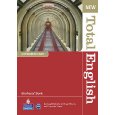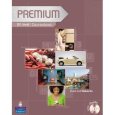Pre-teaching vocabulary is something that many of us were taught to do on our CELTAs or other pre-service course. I hold my hand up to having trained other teachers to do it- and to having, as a result, sat through an excruciating 20 minutes plus while trainee teachers laboriously explained word after word until the students had lost the will to live, never mind the will to read the text.
Another argument against pre-teaching is that it doesn’t train students for real-life encounters with language; that we’re spoon feeding them rather than teaching them the skills to deal with unknown words.
I am sure this is true, and I would certainly not recommend pre-teaching as a way of explaining all the words in a text that students are unlikely to know. However, done sparingly, I think it can have some value both in terms of practicality (making sure they can actually do the task you set, and that you don’t have twenty people all asking the same question, one after another) and in terms of helping to raise interest and motivation.
The questions you need to ask yourself are, I think:
– Do the students actually need to know this word/phrase to do the task?
– Could they guess it from context?
– Can this word or phrase be used productively within this lesson?
Selecting what vocabulary to pre-teach
1. Look at what vocabulary the students will need to know to do the task you set, rather than what they probably won’t know in the text.
2. Look at vocabulary which is directly related to the topic of the text, so that it can be used to activate schema.
To illustrate what I mean, here is a scan of three pages from IELTS Foundation 2nd edition Macmillan 2012, with a set of activities around a reading text. Looking at the tasks set on the third page, there are certain words which the students will need to know to carry out these tasks. I would suggest:
current reluctant short term effects essential reduce prevent tend to encourage efficient
congestion charge higher parking charges public transport pay per mile
The first set of words could be looked at, as necessary, when the teacher is setting the tasks. Many of them are very typical of IELTS questions and so might well be already known. If not, a matching activity with synonyms might work well with these words, especially with synonyms in the text (most IELTS questions will use a synonym rather than the words in the text itself)
The second set of words however are all linked to the topic, so provide scope to act as a lead in to the text as well as a pre-teaching activity. If you look at the first page of the extract, you can see that these and other related words from the text are given to students to categorise into traffic problems and possible solutions. The students then use the words in a personalised way, to talk about problems in their city before reading the text and comparing with their ideas and opinions.
One of the major problems with pre-teaching vocabulary is dealing with a set of seemingly disconnected words, with no context. Choosing words which relate to the topic of the text is a good way round this issue, and the words can also be used productively.
Ideas for pre-teaching vocabulary
1 Categorising is often a good approach, as it should get the learners to engage with the meaning of the words. If the words aren’t related in terms of meaning you could always get them to categorise into ‘words I know’, ‘words I am not sure about ‘and ‘words I don’t know’. Done in pairs, this should lead to peer teaching and you can monitor and then help with any still causing difficulties.
2 Connecting words: ask students to choose two or more words and phrases from those you want to pre-teach and write a sentence using them. This will only really work if the words are at least half known though.
3 Predicting: Ask students to make predictions about the text using the words given. Depending on the words and the students this could range from guessing the topic, to guessing the attitude of the writer, to guessing the answers to the questions they are going to answer.
4 Using the context of the text: Pull out some sentences which contain the words you want to pre-teach and put them up on the board with gaps. Get the students to decide which words go in which gaps.
5 If appropriate, matching the vocabulary you want to pre-teach with pictures. Relatively easy these days, pictures are a great way of providing the context which would otherwise be missing.
If you do decide to pre-teach (and there are, as we have seen, arguments against it), make sure that the words and phrases are useful and contextualised and that the time spent pre-teaching is worth it for what the students will get out of the process.
Please see the previous post on selecting authentic reading materials if this is an area which interests you, or the next one on reading tasks.
If you are currently taking CELTA, can I suggest my e-book, The CELTA Teaching Compendium, available from Amazon and Smashwords, containing everything you need to know for CELTA teaching practice.


















Reblogged this on Татьяна Колчанова.
Pingback: Should we pre-teach vocabulary before reading- and, if so, how? | Flipping the CELTA Classroom | Scoop.it
Hi Rachael
It’s funny how we both blogged about pre-teaching vocab almost at the same time: listening (me) and reading (you).
I generally agree with your claim that pre-teaching vocab has some value. Since I try not to teach individual words the items I’d normally choose to pre-teach would be chunks or collocations, but on the whole I’d say that your suggestion no. 3. is probably the one I use most as a pre-reading task. I think its benefit is that it targets both: teaching vocab and providing a lead-in to the text through prediction. Now, no. 4 is such a simple but great idea – should do it more often – thanks!
Great blog!
LEO
Thanks, Leo. It must be in the zeitgeist! I’m definitely going to drop by and read your blog entry too soon.
Just popped by your blog and realise I had already read your post. So zeitgeist smeitgesit….you probably got me thinking about it in the first place! So, if so, thankyou, and for a great post.
Thanks for the ideas! I always debate with myself whether to pre-teach vocab. It can be such a snooze, but I have had success with the use the words to predict what the text will be about & with pictures. Fast & easy!
Hi Natalie,
Thanks for the comment.
I’ve had a little look at your blog…hope this year is easier for you.
Excellent ideas! I think supporting students with pre-teaching of vocab is a great way to have the whole class on the same page, comprehension wise, so that those who would otherwise be lost can engage as well. It shouldn’t make them lose their will to live though 😛 Thanks for the ideas!
Thanks for stopping by, and glad you enjoyed the post. Yes, I agree it can definitely help build confidence..done in the right way 😉
Hello dear Rachael Roberts? That is a good idea, and I am impressed with the idea you raised. Would you please give me a material that has a kind of argument: teaching vocabulary with chunks Vs teaching vocabulary with single words?
Hi Addisu, Take a look at this powerpoint presentation from Hugh Dellar, who is a bit of an expert in this area. https://www.youtube.com/watch?v=gwKa7Xxa_0Q
Pingback: Should we pre-teach vocabulary before reading- and, if so, how? | Flipping the CELTA Classroom | Scoop.it
Pingback: Should we pre-teach vocabulary before reading- and, if so, how? | Tutor Resources | Scoop.it
Absolutely bang on, Rachael. I couldn’t agree more with your criteria for selecting pre-taught vocab.
It’s quite a relief to see that I’ve arrived at the same principles in my teaching practice as you recommend!
Great minds, eh 😉
I think the problem in pre-reading activities is to balance how much they know about the topic in lexical and culture items and how much they will have to know to understand the text in its details and to expand it on their own. They should have the necessary vocabulary to discuss and construct with their imagination the language they are reading about. While-reading activities can be useful even if you stop for a little the text. Links can be added at this stage to make the comprehension clear and real in a school context.
Hi Luisa,
Thanks very much for commenting. I agree, there certainly isn’t any simple recipe for this. In my opinion, it takes a bit of experience to even be able to make educated guesses about what students might already know or not, and indeed to choose a suitable text in the first place.
I don’t think it’s a no-no to stop in the middle of the text, but if you keep having to stop every few words, or even lines, that can get in the way, can’t it?
Pingback: Should we pre-teach vocabulary before reading- and, if so, how? | Multilingues | Scoop.it
Pingback: Should we pre-teach vocabulary before reading- ...
Thanks Rachel for an interesting and useful reminder of key things to think about when/if pre-teaching vocabulary.
I agree that we should try and simulate real-life as much as possible, where possible, so we equip our learners well for real-life language encounters. Also, I’ve noticed that when I have to work out the possible meaning of a word myself in another language, the satisfaction that comes from succeeding and the effect the process has on my remembering the word is definitely worth the effort.
I think the comment made by Luisa is interesting too that pre-reading vocabulary work sometimes involves vocabulary that is very culturally-loaded. I’d add that sometimes, trying to ‘teach’ the item of, let’s say, chavs, without seeing it in its meaningful context, with the intention/bias of the writer taken into account, can cause way more problems than it well-intentioned-ly (:o) tries to solve. I think the lexis which requires (deep) cultural knowledge is much more effectively dealt with while-reading. I came across an article once which was food-for-thought which was against pre-teaching vocab so as to replicate authentic reading encounters. Do you remember it? If not, I can see if I can dig it out These are good discussions to have on a CELTA/DELTA course rather than just take it that pre-teaching vocab is a done-deal, I feel.
Thanks again for the elevenses reading
Emma
Hi Emma,
Thanks so much for your comment. I’d be very interested if you can dig out that article. Funnily enough, I have been thinking about this whole issue again lately (the post was from March 2012) as a result of reading my first foreign language book for a while. I’m just mulling over the whole issue of what you do with unknown vocabulary while reading, so this is very timely, thank you.
Great article! Do you have any blogs (post text) or comments on how to practice, or make use of the vocabulary learnt? What are good tasks to get students involved and really check understanding?
Hi Amber,
Thanks for commenting. Actually, I haven’t written much about vocab yet, but intend to. In the meantime, I recommend this blog: http://vocabularylists.wordpress.com/about/ In fact, probably everything is already there! 🙂
Pingback: Should we pre-teach vocabulary before reading- ...
Pingback: What are reading skills? –They’re not (only) what you think | elt-resourceful
Pingback: Effective Eliciting | Recipes for the EFL Classroom
Pingback: Effective Eliciting – EFL Ste